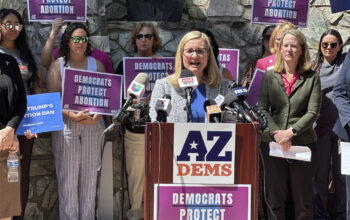The abortion debate has been a central point of contention in France lately, with the National Assembly considering a proposal to enshrine the right to abortion within the country’s constitution. Proponents argue that this move is essential to safeguard reproductive rights, while opponents worry about the implications for the unborn and societal values. Understanding the multi-faceted discussion necessitates an exploration of historical context, legal precedent, and the broader social and ethical considerations. Here, we dissect the nuances of this complex debate in France, delving into the motivations, concerns, and potential outcomes of this significant constitutional move.
France’s current abortion laws stem from the historic 1975 “Veil Law,” named after then-Minister of Health Simone Veil, which legalized the practice. Since then, abortion has been widely available under the state health system, with the standard procedure subsidized by the government. The Veil Law, however, was not amended in the Constitution, leading to a perennial debate about the strength of protection for this right. The proposed constitutional amendment aims to resolve this once and for all, marking a definitive stance in the defense of abortion rights.
Despite the seemingly forward-looking proposal, the path to enshrining abortion rights in the Constitution is fraught with opposition. A significant portion of that resistance comes from conservative lawmakers and advocacy groups, who argue that the move is not about rights but about ideology. For them, the sanctity of life begins at conception, and a constitutional amendment would undermine this fundamental belief. Moreover, they contend that the amendment is based on a societal myth of impending threats to abortion rights, which proponents suggest require constitutional protection.
Another layer to the debate is the practical necessity of the constitutional amendment. Proponents assert that healthcare rights should be fundamental and inviolable, necessitating their enshrinement in the highest law of the land. For those who have fought for the recognition of reproductive rights as part of healthcare, the amendment is a logical next step in securing long-term protections. Yet critics counter that the current legal framework, anchored in the Veil Law, is sufficient and that constitutional amendments should be approached with more reserve, reserved for principles that have national and broad societal consensus.
The public opinion on this issue in France is notably varied. While there is significant public support for abortion rights, with polls suggesting that over half of the French population supports the constitutional amendment, a considerable segment remains hesitant. This divide mirrors the split among lawmakers, demonstrating the broader complexity of the issue. Psychological, economic, and demographic factors come into the picture, as well as the role of religion and individual morality in shaping these attitudes and beliefs.
As the proposal continues to navigate the complex waters of French politics and society, one thing is certain: the debate on abortion rights is far from over. The outcome of this constitutional discussion will not only shape the legal landscape in France but also contribute to the ongoing global discourse on reproductive rights and the balance between individual autonomy and state interests. It is a multifaceted issue that requires a nuanced understanding of the diverse perspectives involved and a recognition of the profound impact that any decision will have on the lives of the French people.

















